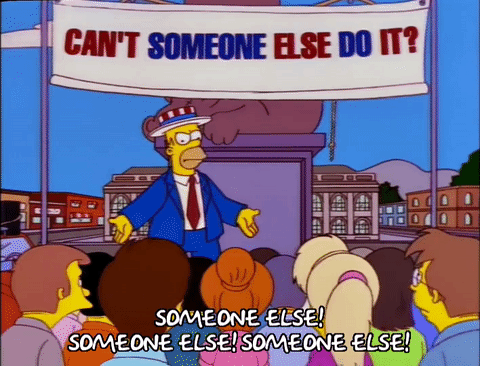Well, they certainly are cutting it fine,
aren’t they? With about 2 weeks until the article 50 deadline, nothing has been
agreed in parliament, and the default remains no deal. Later today, MPs will
likely vote en masse against this option, in principle, but with nothing of
substance to change the fact that it is ultimately still the default option.
They just aren’t trying hard, are they? Or maybe they are indeed trying, just
trying to fail.
Since the start the start of the article 50
process, the main driver of for MPs of all parties and factions, with the
exception of May and her loyalists, has been to avoid responsibility for
whatever happens next. This makes a lot of sense, as all the options are toxic
politically. Labour MPs, particularly in leave seats, are worried (perhaps
mistakenly) about alienating leave voters, but they also know the majority of
their voters and members do not like Brexit at all. For the Labour leadership and a large part of the parliamentary party, the preferred option is
for May’s deal to pass, but without their own support. As Owen Jones put it,
what they really want is for the Tories to own the consequences of Brexit, but
without actively supporting anything else. They will therefore continue to vote
against anything of substance which could pass a vote in commons, in the belief
that this means whatever happens next they will have opposed it. In order to
negate the claim that this ultimately allowed the actual outcome, they will continue to support certain quasi substantive motions only upon the condition
that they cannot possibly pass in the House of Commons. Corbyn will put forth
his alternative Brexit bill a second time, it will fail a second time, and he might even try another vote of no confidence.
The ERG’s motivations are a little more
varied, but with some overlaps. A few may genuinely want no deal as an outcome. They know that this is
still the default option, and may be willing to take a gamble on the MPs
failing to coalesce around an alternative. However insane the desire for no deal, it
is not an irrational strategy for obtaining it, given what we have seen of the
behaviour of MPs over the last 2 years. For others, it is simply about
positioning themselves in line with the 57% of Conservative Party members who
prefer no deal to anything else. For them, the ideal outcome to have supported
no deal and failed to achieve this outcome. This way, they get to position themselves as the true Brexit believers, without actually having to face up to the consequences of no deal. The problem is they are now dangerously close to actually achieving this outcome, which is where the Malthouse Compromise comes in: they will claim
this represented a substantial policy contribution which could have made no
deal work, and blame the actual disaster on the failure of parliament to
support it. When parliament votes against no deal in principle, this will be used as evidence that if it does happen, it was not done with proper gusto. They will therefore have failed to
achieve what they claimed would make the policy workable, and content
themselves with a no deal by default, the consequences of which will be blamed
on others.
Unfortunately, all other things being equal, both groups will succeed. Whatever happens next, they will not have supported it, and have failed to achieve their alternative. This will not be a happy outcome, to say the least.

Thank you for your post. This is excellent information. It is amazing and wonderful to visit your site.
ReplyDeleteHouse Extension in Camberwell
brandcaresolutions
ReplyDeletebrandcaresolutions
brandcaresolutions
brandcaresolutions
brandcaresolutions
brandcaresolutions
brandcaresolutions
brandcaresolutions
brandcaresolutions
brandcaresolutions
brandcaresolutions
brandcaresolutions
brandcaresolutions
brandcaresolutions
brandcaresolutions
brandcaresolutions
brandcaresolutions
brandcaresolutions
brandcaresolutions
brandcaresolutions
brandcaresolutions
brandcaresolutions
brandcaresolutions
brandcaresolutions
brandcaresolutions
brandcaresolutions
brandcaresolutions
brandcaresolutions
brandcaresolutions
brandcaresolutions